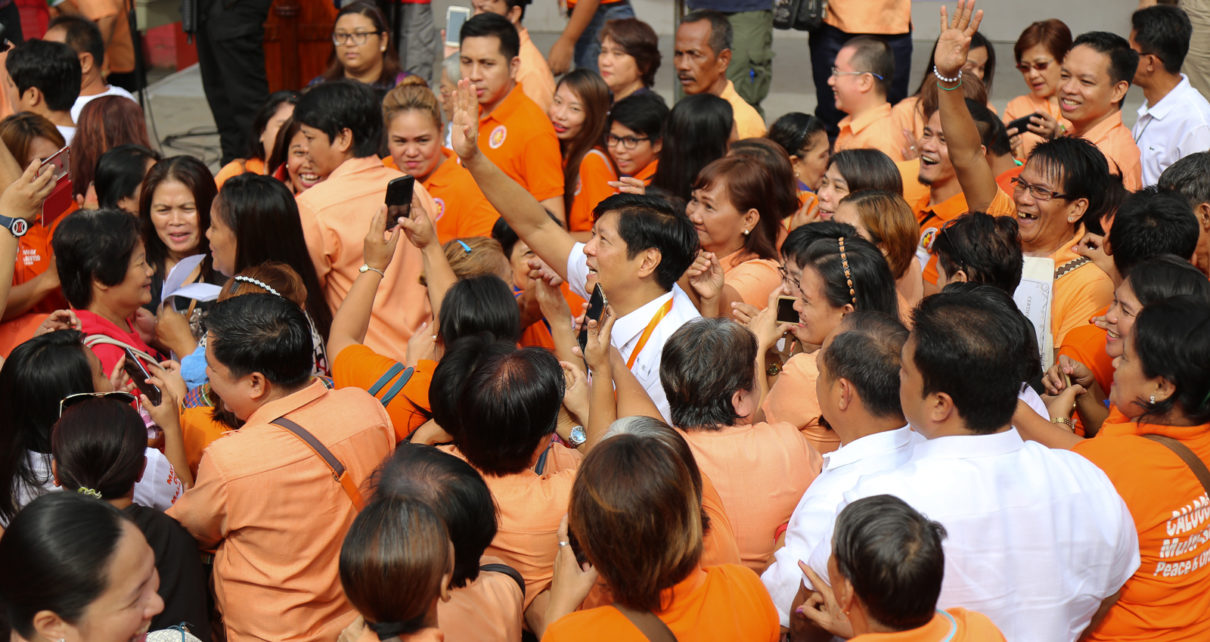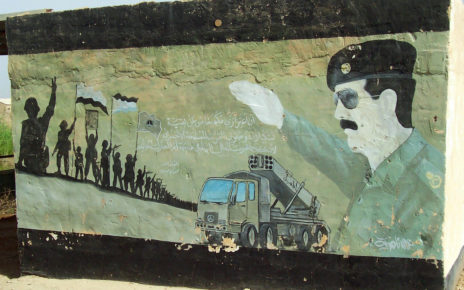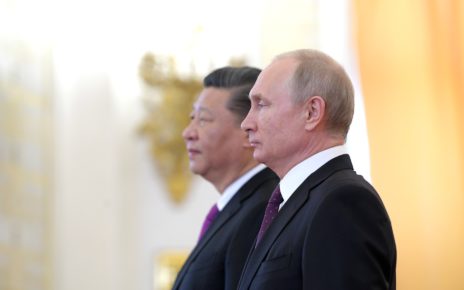The latest presidential election in the Philippines was marked not by its novel outcome, but also by its banality and affirmation of the new norms of domestic politics developing in democracies across the globe. As with countries such as the US, a series of social and economic crises, including the emergence of a polarizing political figure and a widely held perception of faltering social mobility, a wealthy candidate with a familiar last name was swept into office, riding a surge of nostalgia and propelled by a savvy disinformation campaign. The election of Ferdinand Marcos Jr., the son of former dictator Ferdinand Marcos Sr., is notable for his campaign’s ability to overcome his father’s legacy of brutality and violence, often by rebranding symbols related to the martial law period, highlighting the effectiveness of historical revisionism within strategic narratives.
The name Ferdinand Marcos Sr. has become an international symbol for the brutality and corruption that often underpins authoritarianism. Duly elected in 1965 and supported by the US for his strident anti-Communism and his allocation of basing rights to the US military during the height of the Vietnam War, Marcos seized absolute power in 1972 after declaring martial law. During his extended time in office, Marcos ruled by repressing political rivals and dissidents, orchestrating a campaign of human rights violations which featured torture, extra-judicial killings, and mass imprisonments. Along with his wife, Imelda, the Marcoses also stole significant funds from state coffers for their personal benefit, including Imelda’s infamous collection of thousands of pairs of shoes.
After 12 years of martial law and the loss of the support of the Reagan administration, however, the Marcoses were finally forced to flee the country following the People Power Revolution, which emerged in 1986 and returned democracy to the Philippines. Once ousted, Ferdinand was also held legally responsible for the atrocities committed by his regime, with his estate eventually paying out $2 billion USD to compensate roughly 9,000 Filipinos for violating their civil rights.
While Marcos Sr. passed away in 1989 after a self-imposed exile in Hawaii, the family has remained active within Filipino politics as evidenced by Ferdinand Marcos Jr.’s recent presidential victory after returning to the island nation in 1991. Replacing President Rodrigo Duterte, a leader that also utilized disinformation while conducting the Philippines’ war on drugs, Marcos defeated outgoing Vice President Leni Robredo by over 15 million votes, registering a landslide victory while campaigning on a platform of job creation, improvements to the agricultural sector, and lowering the cost of living.
However, rather than merely representing the popularity of Marcos’ platform, the election was also significantly influenced by the campaign’s social media strategy, which often relied on propagating a revisionist-centred disinformation campaign aimed at sanitizing his father’s regime. Across social media platforms such as TikTok, influencers linked to Marcos have routinely portrayed the period of martial law as a “golden age” due to the country’s political stability. This effort has been followed by an attempt to cultivate a sense of nostalgia for aspects of Marcos Sr.’s rule, such as remixing popular martial songs and featuring symbols associated with the New Society Movement, Marcos Sr.’s campaign of repression, in viral video clips. This campaign has also been combined with new restrictions being placed on the press and a general distrust of the government’s pronouncements beginning in primary schools due to a politicized curriculum, limiting the public’s knowledge of the country’s past.
While the election in the Philippines is representative of a rising tide of authoritarianism across the globe and the enduring appeal of grievance politics, Marcos’ campaign also demonstrates an effective use of strategic narratives in crafting disinformation campaigns. Strategic narratives are stories and beliefs that attempt to entice their audiences to assign meaning to specific events or norms and are disseminated for the purpose of achieving a particular objective. These narratives are typically utilized by special operations forces in cases of foreign internal defence to convince foreign civilian populations to fight against an adversary. In order to bolster their salience and subsequent adoption within the broader population, these narratives are also often rooted in individuals’ pre-existing identities, including nationality, religious affiliation, and social class, with the purpose of allowing individuals to perceive themselves as part of a larger community.
In the period prior to the election and during the campaign, Marcos’ information strategy relied significantly on encouraging a collective form of nostalgia for a mythologized glorious past, a belief often invoked merely by the use of his surname. This strategy also intersected with an undercurrent of anger and anxiety over the current state of Filipino society, which has continued to suffer from economic scarring due to the pandemic, drug-related crime, and a corrupt political class, implicitly lending credence to Marcos’ promises of revitalization. These forces, along with the Marcos family’s traditional basis of support within the country’s northern provinces and their vast personal fortune, significantly influenced the presidential contest’s outcome and contributed to a society increasingly primed to support an illiberal form of politics.
Even if Ferdinand Marcos Jr.’s regime differs substantially from his father’s time in office, his election represents a potential high-water mark for the influence of a disinformation campaign. Using simple social media techniques, a vast fortune amassed from public graft, and the opportunity offered by a sputtering political class, Marcos has so far been able to replace the legacy of brutality synonymous with his surname with a pining for martial law among the broader public. That transformation–from a troubled but maturing liberal democracy into a country whose political culture is now increasingly veering towards authoritarianism–is a warning sign that even the most well-designed campaign anthem fails to drown out.
Image copyright: “Pasasalamat Tour: BBM visits Caloocan City – 01 August 2016” by Bongbong Marcos via Flickr. Licensed under CC BY-NC-SA 2.0.
Disclaimer: Any views or opinions expressed in articles are solely those of the authors and do not necessarily represent the views of the NATO Association of Canada.




